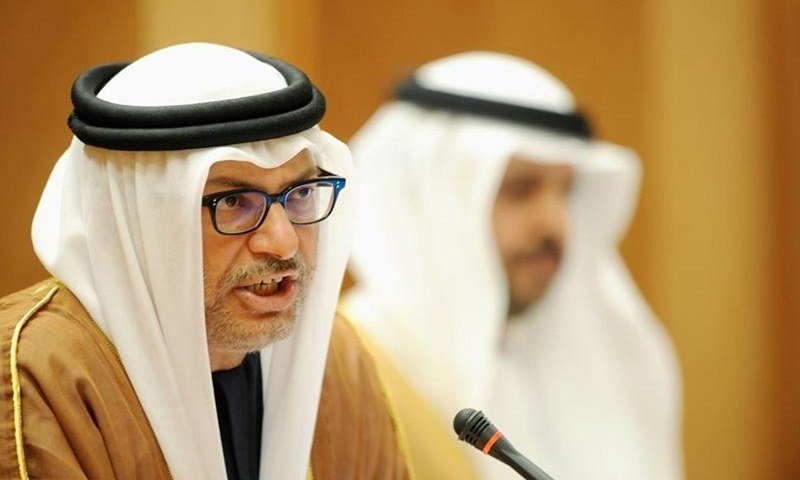In the most clear-cut expression of growing discontent over Ankara and Tehran’s expanding reach across the Arab world, a senior Emirati politician urged the Arab leaders to come together to resolve regional crises and combat against influences of Turkey and Iran.
“The world is at an impasse, and the solution is to cooperate in the face of surrounding regional ambitions,” Dr. Anwar Gargash, the United Arab Emirates Minister of State for Foreign Affairs and influential figure in the Emirati politics, said on Twitter.
“The sectarian and partisan approach is not an acceptable alternative. The Arab world will not be led by Tehran or Ankara,” he said, according to The National.
He called for a strong Arab unity led by Riyadh and Cairo, capitals of two regional powerhouses, to push back against non-Arab powers in the geostrategic competition in the region.
His remarks came after a diplomatic spat between Turkey and UAE. Ankara swiftly reacted to a tweet shared by UAE Foreign Minister Sheikh Abdullah bin Zayed Al Nahayan, accusing Ottoman Governor of Medina of stealing money and manuscripts during the First World War.
President Recep Tayyip Erdogan called on al Nahayan to “know your place.”
Ottoman Governor Fahreddin Pasha governed Medina, one of the two holy cities in the Kingdom revered by all Muslims across the world, between 1916 and 1919 before the Ottoman Empire finally lost its political control of the Arab world.
Mr. Gargash’s tweets reflect a deepening split between Turkey and his country. UAE and Turkey appear on opposing sides in the Gulf dispute over Qatar which faced a blockade from air, land an sea from its neighbors led by Saudi Arabia to punish Doha for its close relations with Iran, its break with fellow Gulf countries in many regional policies.
In a snub to Saudi Arabia and its Gulf allies, Turkey stood by Qatar in the Gulf crisis.
Mr. Gargash’s warning against Iran also points to the appreciation of a fact about Tehran’s growing regional reach. Iran’s widening influence from Iraq to Yemen has ruffled feathers in Arab capitals.
Saudi Arabia has locked in a regional geopolitical competition with its arch-rival, Iran, and views every regional crisis from the prism of its rivalry with Tehran.
Turkey’s thrust to regional politics as an assertive player under the administration of President Erdogan has become a source of ever-growing discontent in the traditional power centers of the Arab world.




Comments are closed.